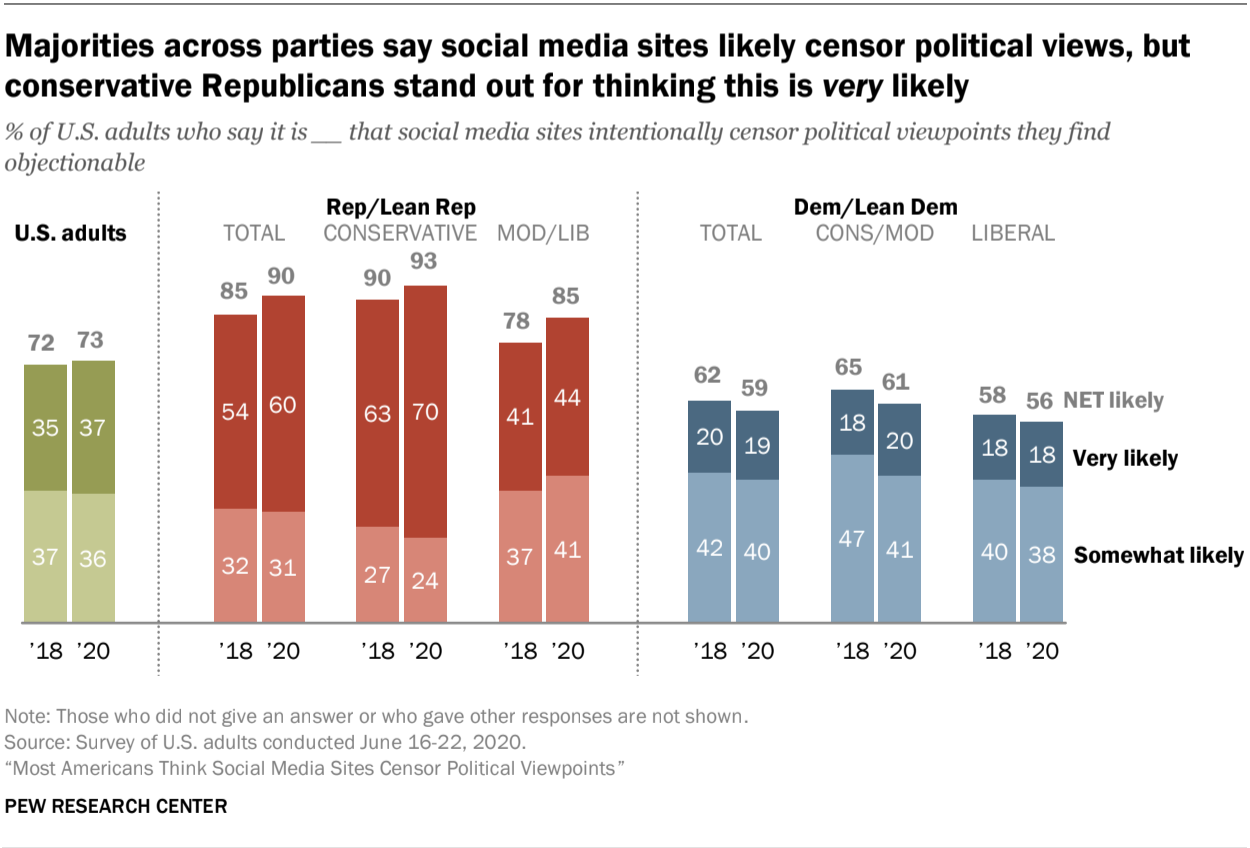Survey: Majority Think Big Tech Censors Political Speech
Respondents split on whether social media should flag inaccurate or misleading content

The smarter way to stay on top of the multichannel video marketplace. Sign up below.
You are now subscribed
Your newsletter sign-up was successful
In a "ripped from the media beat's headlines" story, most Americans said social media sites intentionally censor political viewpoints they decide are objectionable.
That is according to a new survey released Wednesday (Aug. 19) by Pew Research Center, appropriately titled "Most Americans Think Social Media Sites Censor Political Viewpoints."
The survey comes as the Trump Administration pushes to regulate social media content over allegations by the President of an anti-conservative bias, particularly after Twitter flagged tweets from the President about mail-in voting and protestors.
The Pew survey found that 73% of respondents said it is very (37%) or somewhat likely (36%) that the sites are censoring political viewpoints, while only 25% said it is not likely.

A vast majority of Republicans say that is the case, but a majority of Democrats (59%) also agree.
Respondents were pretty much split on whether social media sites should flag posts as misleading or inaccurate, with 51% saying they at least somewhat approve, while 46% said they at least somewhat disapprove.
But 66% said they do not have too much or no confidence that social media sites are able to correctly determine what content to flag.
The smarter way to stay on top of the multichannel video marketplace. Sign up below.
As to whether Big Tech backs liberal views over conservative views--which is at the heart of the Trump pushback--69% of Republicans said that "major technology companies generally support the views of liberals over conservatives," while only 25% of Democrats said that is the case.
The report is based on an online survey of 4,708 U.S. adults June 16-22, 2020, using Pew Research Center’s American Trends Panel. The margin of error is plus or minus eight percentage points.
Contributing editor John Eggerton has been an editor and/or writer on media regulation, legislation and policy for over four decades, including covering the FCC, FTC, Congress, the major media trade associations, and the federal courts. In addition to Multichannel News and Broadcasting + Cable, his work has appeared in Radio World, TV Technology, TV Fax, This Week in Consumer Electronics, Variety and the Encyclopedia Britannica.

